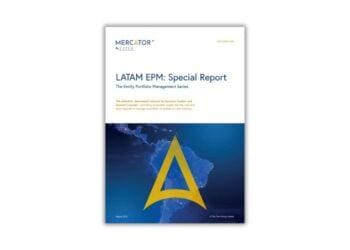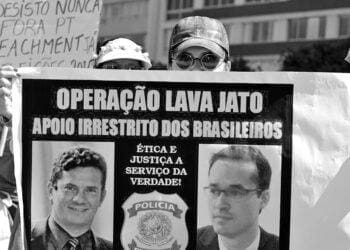This article was republished with permission from FCPAméricas Blog, for which Matteson Ellis is founder, editor and regular contributor.
Hugo Chavez came to power in Venezuela in 1999, riding a wave of dissatisfaction with the corrupt oligarchic elite that had governed the country for years. Despite his promise, corruption in Venezuela is still rampant, and it might have gotten worse. Chavez’s successor, President Nicolas Maduro, just last week approved a set of strengthened anti-corruption laws in the country. Even so, today Venezuela is consistently perceived as one of the most corrupt countries in the world – the 15th most corrupt (out of 175 countries) on Transparency International’s 2013 Corruption Perceptions Index. Only Haiti ranks higher in Latin America.
Over the years, new types of corruption risks have emerged as Venezuela has fallen into political and economic chaos. Today, FCPA risks tend to arise in tangible and intangible ways.
Tangible Risk Factors
Widespread State Ownership. The more ownership that the state has in the local economy, the more opportunity there is for FCPA problems. Over the years in Venezuela, the government has begun to participate in sectors as diverse as energy, telecommunications, food, clothing and automobiles, either through joint ventures or expropriation. Such state involvement greatly increases the potential touch points that companies can have with “foreign officials.”
For example, companies doing business with PDVSA, the state-owned oil company that was a source of bribe requests in the FCPA action against Pride International, commonly experience a variety of corruption risks. Projects are often held up due to lack of funds, creating leverage for PDVSA officials to demand improper payments from companies to keep engagements going. PDVSA frequently falls behind on paying its bills to service providers, which has generated a cottage industry of third-party collection agencies that can be attractive (and risky) to companies owed thousands, if not millions, of dollars.
Currency Controls. Venezuela’s currency exchange controls, designed to stem capital flight and inflation, have created accounting as well as bribery risks for companies. It is common for companies to look for creative ways to remove their money from the country. The black market for dollars is thriving, offering up to 10 times the primary exchange rate offered by the government. Agents regularly pitch their services for moving currency through offshore channels. Local service providers often request that fees be paid outside of the country. Though these practices might be pervasive, they still have the potential of creating FCPA accounting violations.
Moreover, under local currency regimes, if a company (or its agent) can convince the government that its imports are vital to the local economy, it can obtain a more preferential official exchange rate for their purchase. This raises bribery risks, too.
The Law of Fair Prices. The recent enactment of a Law of Fair Prices (the Ley Orgánica de Precios Justos, published in the Official Gazette No. 40.340 of January 23, 2014) has put some companies in an impossible situation. Cost structures are subject to central control, making it difficult for some enterprises to stay profitable. At the same time, if the company reduces or shuts down its operations, it can risk violating the same law, which prohibits “boycott” and “sabotage” of the local economy. Companies that reduce normal operations can be subject to penalties like suspension of business, confiscation of goods and revocation of business licenses. Company personnel can be subject to criminal fines, including jail time. As a result, many companies feel a squeeze from two different directions.
This dynamic creates various types of business pressures, including pressures to make improper payments. An employee might be tempted to bribe an official who is threatening to shut down a company’s operations, based on a fear of going to jail. One local lawyer, who wishes to remain anonymous, says, “Officials’ salaries are low, and high levels of impunity mean they are positioned to close companies if demands are not met, which can lead to criminal liability.” Company personnel might also make improper payments to reduce costs and keep their companies afloat, such as to get customs duties reduced or to obtain regulatory approvals to downsize workforces.
Intangible Risk Factors
The environment in Venezuela today has also made it difficult for local companies to perform basic compliance tasks and for parent companies to exercise proper compliance oversight of their local subsidiaries. This has had an intangible effect on FCPA risk.
Security and Intimidation Concerns. Violence in Venezuela is high. A homicide rate of approximately 5,000 in 1998 has grown to an estimated 25,000 in 2013. When a company’s workforce has legitimate concerns of their own personal safety, it is difficult to get them to pay particular attention to corruption risks.
Moreover, people are generally afraid of doing something that could upset the government. Intimidation by security forces means that employees might not be comfortable discussing corruption risks at group compliance trainings. Due diligence on third parties is complicated when people are wary of sharing detailed information about other companies. FCPA internal investigations are frustrated when interviewees refuse to talk about government officials, fearing that meeting rooms might be bugged or that conversations will be shared.
The Brain Drain. Because so many talented professionals have now left the country, international companies are finding it difficult to identify qualified local personnel to manage their anti-corruption compliance programs on the ground. Not only is local capacity in corporate compliance, financial controls and other key areas becoming scarce, companies find it difficult simply to recruit local professionals who speak English and are thus positioned to communicate more easily with head offices in the United States, Europe and elsewhere. Where talent does exist, companies are competitively fighting over it. Frequently, these compliance professionals are trying to leave the country too.
The opinions expressed in this post are those of the author in his or her individual capacity and do not necessarily represent the views of anyone else, including the entities with which the author is affiliated, the author`s employers, other contributors, FCPAméricas or its advertisers. The information in the FCPAméricas blog is intended for public discussion and educational purposes only. It is not intended to provide legal advice to its readers and does not create an attorney-client relationship. It does not seek to describe or convey the quality of legal services. FCPAméricas encourages readers to seek qualified legal counsel regarding anti-corruption laws or any other legal issue. FCPAméricas gives permission to link, post, distribute or reference this article for any lawful purpose, provided attribution is made to the author and to FCPAméricas LLC.



 Matteson Ellis serves as Special Counsel to the FCPA and International Anti-Corruption practice group of Miller & Chevalier in Washington, DC. He is also founder and principal of Matteson Ellis Law PLLC, a law firm focusing on FCPA compliance and enforcement. He has extensive experience in a broad range of international anti-corruption areas. Previously, he worked with the anti-corruption and anti-fraud investigations and sanctions proceedings unit at The World Bank.
Mr. Ellis has helped build compliance programs associated with some of the largest FCPA settlements to date; performed internal investigations in more than 20 countries throughout the Americas, Asia, Europe and Africa considered “high corruption risk” by international monitoring organizations; investigated fraud and corruption and supported administrative sanctions and debarment proceedings for The World Bank and The Inter-American Development Bank; and is fluent in Spanish and Portuguese.
Mr. Ellis focuses particularly on the Americas, having spent several years in the region working for a Fortune 50 multinational corporation and a government ethics watchdog group. He regularly speaks on corruption matters throughout the region and is editor of the FCPAméricas Blog.
He has worked with every facet of FCPA enforcement and compliance, including legal analysis, internal investigations, third party due diligence, transactional due diligence, anti-corruption policy drafting, compliance training, compliance audits, corruption risk assessments, voluntary disclosures to the U.S. government and resolutions with the U.S. government. He has conducted anti-corruption enforcement and compliance work in the following sectors: agriculture, construction, defense, energy/oil and gas, engineering, financial services, medical devices, mining, pharmaceuticals, gaming, roads/infrastructure and technology.
Mr. Ellis received his law degree, cum laude, from Georgetown University Law Center, his masters in foreign affairs from Georgetown’s School of Foreign Service, and his B.A. from Dartmouth College. He co-founded and serves as chairman of the board of
Matteson Ellis serves as Special Counsel to the FCPA and International Anti-Corruption practice group of Miller & Chevalier in Washington, DC. He is also founder and principal of Matteson Ellis Law PLLC, a law firm focusing on FCPA compliance and enforcement. He has extensive experience in a broad range of international anti-corruption areas. Previously, he worked with the anti-corruption and anti-fraud investigations and sanctions proceedings unit at The World Bank.
Mr. Ellis has helped build compliance programs associated with some of the largest FCPA settlements to date; performed internal investigations in more than 20 countries throughout the Americas, Asia, Europe and Africa considered “high corruption risk” by international monitoring organizations; investigated fraud and corruption and supported administrative sanctions and debarment proceedings for The World Bank and The Inter-American Development Bank; and is fluent in Spanish and Portuguese.
Mr. Ellis focuses particularly on the Americas, having spent several years in the region working for a Fortune 50 multinational corporation and a government ethics watchdog group. He regularly speaks on corruption matters throughout the region and is editor of the FCPAméricas Blog.
He has worked with every facet of FCPA enforcement and compliance, including legal analysis, internal investigations, third party due diligence, transactional due diligence, anti-corruption policy drafting, compliance training, compliance audits, corruption risk assessments, voluntary disclosures to the U.S. government and resolutions with the U.S. government. He has conducted anti-corruption enforcement and compliance work in the following sectors: agriculture, construction, defense, energy/oil and gas, engineering, financial services, medical devices, mining, pharmaceuticals, gaming, roads/infrastructure and technology.
Mr. Ellis received his law degree, cum laude, from Georgetown University Law Center, his masters in foreign affairs from Georgetown’s School of Foreign Service, and his B.A. from Dartmouth College. He co-founded and serves as chairman of the board of 









